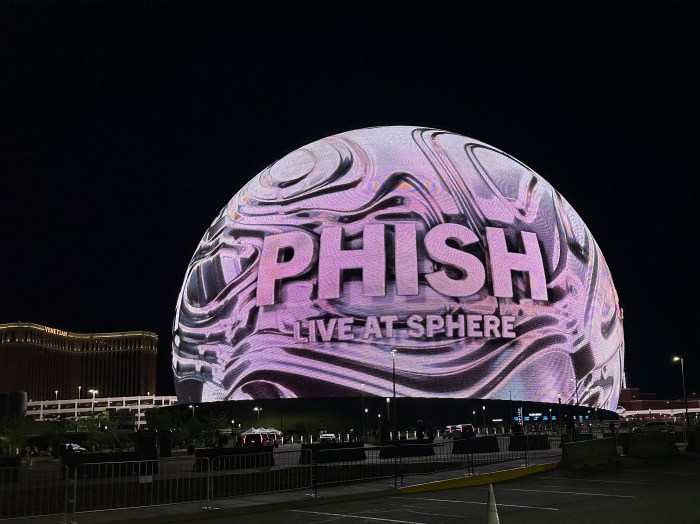 The Stranglers play High Line Ballroom in NYC on June 3, at Brighton Music Hall in Allston, Mass., on June 4 and Union Transfer in Philly on June 5.
The Stranglers play High Line Ballroom in NYC on June 3, at Brighton Music Hall in Allston, Mass., on June 4 and Union Transfer in Philly on June 5.
While punk rock veterans and astute audiophiles are no strangers to the Stranglers’ pedigree, the band feels as though they’ve never received their due respect in America — to the point that they even started ignoring us.
Their new record, “Giants,” was released in the U.S. this week, but it has already been out in Europe for a year. And their North American tour, which starts next week, will be their first in 17 years.
“We didn’t consider releasing it in the States until people asked us if they could release it,” says bassist/singer/founder J.J. Burnel. “We’ve been offered a few tours, but we didn’t feel like it. For once, we’ve accepted. It’s not the be-all end-all, you know, but we’re very excited to come over to the other side of the pond.”
If the Sex Pistols gave a snarling face and attitude to the genre while The Clash and Ramones would go on to define its boundaries of sound, the Stranglers’ legacy lies in their longevity and diversity. They preceded the previously mentioned bands, and their music never stopped — it only progressed.
“The term [punk] is interesting because it has meant more for us over the years,” notes Burnel. “The first time I heard it used was in 1975, and it was still a bit of a broad church. But the term quickly got ambushed by fundamentalism, and it started to describe a much narrower field than I was able to accept. Joe Strummer of The Clash used to come see us regularly when he was still in a rhythm and blues band — and certainly the Pistols were coming to see us before they started their band. I’m not sure if we really subscribed to their philosophies, but we were slightly ahead of the game, and of that whole generation of bands, we were definitely the first. We just didn’t do the big American thing. That wasn’t our agenda.”
With a career spanning 17 records and closing in on 40 years, perhaps the term “punk” is just too simplistic and vague to describe the band’s vast catalog. Their sound has always been far more complex and diverse than the three-chord, two-minute anthems of their contemporaries. With classics as disparate as the bass-heavy rumble and crass spoken-word “Peaches,” to their sinister harpsichord waltz “Golden Brown,” the Stranglers never subscribed to a specific attitude or formulaic sound.
“The Stranglers have always written about the world that we live in. If the world was just a bedroom where I was f—ing, or a blingy thingy, it would be appropriate that way. But we have a ‘world view.’ We try to stay informed and have an opinion and try to approach it in terms that people will listen to it. This last album had the best reviews in our history, and last year we played maybe 20 countries. The fact that it’s taken all this time for the U.S. to seduce us back is more a reflection on you guys than with us, to be honest. … It’s exciting, and it’s been so long now, it’s almost like I’m a virgin.”
Bonus question: What do you think the Stranglers’ legacy is and will be?
Well, that’s what the French call “nominalism” or “bellybutton-ism.” It’s something that I really don’t spend any time thinking about. But it is perhaps something that journalists and commentators will mire over and talk about if we’re lucky. But we’re still alive and kicking, so the legacy can wait a bit longer.


















